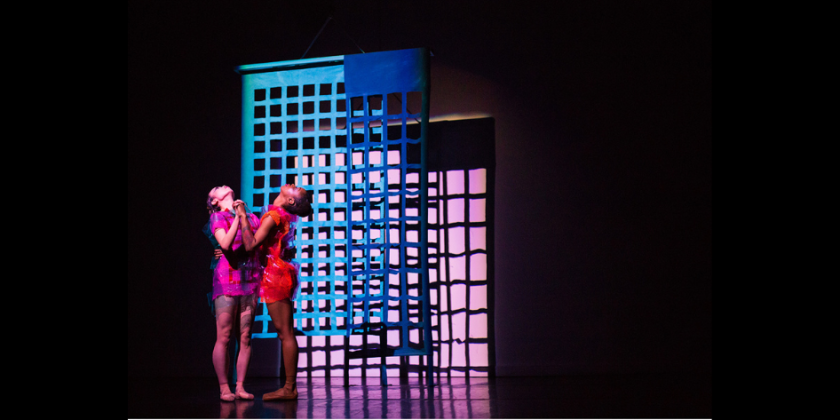IMPRESSIONS of This is Not a Theatre Company's "Pool Play 2.0"

Performed by Trinity Bobo, Carol Brown, Ashley Wren Collins, Kim Ima, Caiti Lattimer, Jonathan Matthews and Chris Morriss
Writer: Charles Mee
Director: Erin Mee
Stage Manager: Sophia Lana Cohen Smith
Presented at the Waterside Swim & Health Club, March 11th, 2017
Founded in 2013, This is Not a Theatre Company challenges relationships between audiences and performers by bringing theater and movement into unconventional spaces. Pool Play 2.0 is the latest of its shenanigans in which it transforms the Waterside Swim & Health Club Pool into a playground for a series of eccentric mini-plays. The title Pool Play holds a double meaning: The performance takes place in a pool, and it revolves around the theme of a pool. Sometimes silly but always poignant, Pool Play 2.0 engages on many levels.
On the surface, stories relate a string of events, one of the first things a person encounters and then follows. However, layers of complexity lurk beneath that, lending depth and rendering the narrative unique for every person. The pool that surrounds us serves as a physical manifestation of this.
Mini-plays transport us to various pools around the country to relate human-interest stories. While superficially cute and funny, many of the skits contain more content and provoke more thought than initially suspected.

Caiti Lattimer and Carol Brown play a pair of gossipy women who reflect on the swimming pool that serves the local middle school. As Brown treads water, she speaks about how girls lie about having their periods, so they can get out of gym class. It’s funny, but it also taps into painful memories of uncomfortable social dynamics in adolescence and dealing with changing bodies.
In one poolside interaction, an older sister (played by Lattimer) lectures her younger brother (Chris Morriss) about the historic segregation of a community pool in Virginia. She describes unsuccessful attempts to desegregate it. This pool acts an example of how racial dynamics from one hundred years ago still simmer beneath the surface of today’s interactions.
At times, writer Charles Mee’s script becomes more existential. Lattimer performs a monologue as a fish, mocking our complex human existence and boasting about a life that revolves around two things: finding food and not getting killed by predators.

Light-hearted movement interludes, mainly performed by Jonathan Matthews, are the thread that knits everything together. Clad in a red-and-white striped shirt, Matthews toys with exposing certain parts of his body, indulgently flapping his arms and then turning upside down to flutter his feet. Matthews’ graceful, melodramatic ditties become increasingly comical and eccentric as, each time he appears, he flaunts a new bathing cap.
As for the audience, we literally get our feet wet. We’re seated on padded mats around the edge of the pool, feet dangling in the water. The performance takes place in the pool and on its outskirts, so sometimes we surround the action and sometimes the action surrounds us.
This setting invades our senses on many levels: the warmth of the water, the pungency of the chlorine, the shimmering reflections of the pool that reflect off the glass ceiling. The occasional splash from a cannonball reminds us that we are part of the performance (ponchos are provided, so we don’t head into the below-freezing outdoors soaking wet).
The show ends with a charming synchronized swimming routine that disintegrates into a big, splashy game, pool toys flying every which way. Like the pool itself, Pool Play 2.0’s light and accessible surface gives way to depth and substance.












